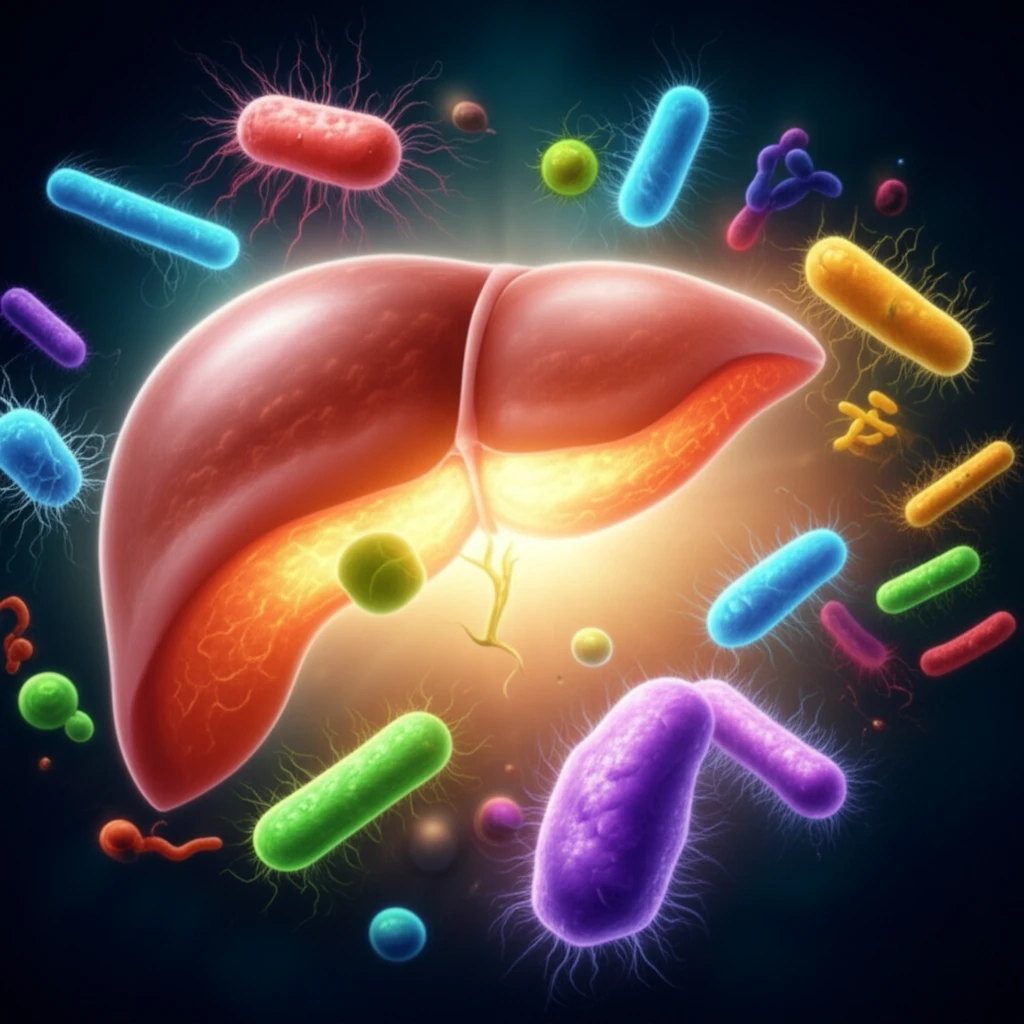
Gut Health SOS: How Infant Microbiome Imbalances Impact Liver Function
"New research reveals the surprising link between gut bacteria, liver health, and potential solutions for infants with cholestasis."
In the delicate dance of infant health, the gut microbiome plays a surprisingly pivotal role. It's a bustling ecosystem within your baby's digestive system, teeming with trillions of bacteria, fungi, and viruses. This complex community, established early in life, is now recognized as critical to overall health, influencing everything from immune function to brain development. But what happens when this intricate system goes awry? Recent research sheds light on a critical connection: the link between the infant gut microbiome and liver health, specifically in cases of cholestasis.
Cholestasis, a condition marked by impaired bile flow, is a significant concern in infants. It can lead to serious complications if left unaddressed. While the causes of cholestasis vary, emerging evidence points to a previously underestimated factor: the composition and function of the gut microbiome. This article dives deep into a recent study that meticulously analyzed the gut bacteria of infants with cholestasis, revealing fascinating insights and potential avenues for intervention.
This is not just about understanding a medical condition; it's about empowering parents with knowledge. By exploring the intricate relationship between gut health and liver function, we can move towards proactive measures, preventative strategies, and informed decisions for your child's well-being. This new research can help you understand the impact of gut health on infant's health and how it affects liver functions.
Decoding the Gut: What the Research Uncovered

The study, published in Frontiers in Microbiology, focused on comparing the gut microbiomes of 43 infants diagnosed with cholestasis (the IC group) to 37 healthy infants (the H group). Researchers used advanced DNA analysis to identify and quantify the different types of bacteria present in each infant's gut. The results were striking, revealing significant differences between the two groups. The diversity of the bacterial community was notably lower in the IC group compared to the H group. This suggests a less balanced and potentially less resilient gut environment in infants with cholestasis.
- Reduced Beneficial Bacteria: The IC group showed lower levels of beneficial bacteria like Bifidobacterium and Bacteroides, known for their roles in promoting gut health.
- Increased Problematic Bacteria: Conversely, the IC group had higher levels of bacteria like Streptococcus, Enterococcus, and Staphylococcus, which can be associated with inflammation and other health issues.
- Altered Network Dynamics: The researchers also analyzed how different bacteria interact within the gut ecosystem. They discovered that the IC group exhibited a more complex and less stable co-occurrence network.
The Path Forward: Implications and Future Directions
This research opens the door to exciting possibilities. It underscores the importance of the gut microbiome in infant health and provides a foundation for future studies. By understanding the intricate interplay between gut bacteria and liver function, we can begin to explore targeted interventions, such as dietary changes or probiotic supplements, to support healthy gut development in infants. This is the new beginning of better health for infants.
